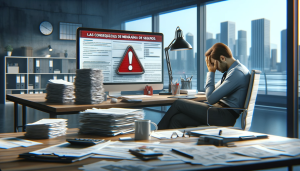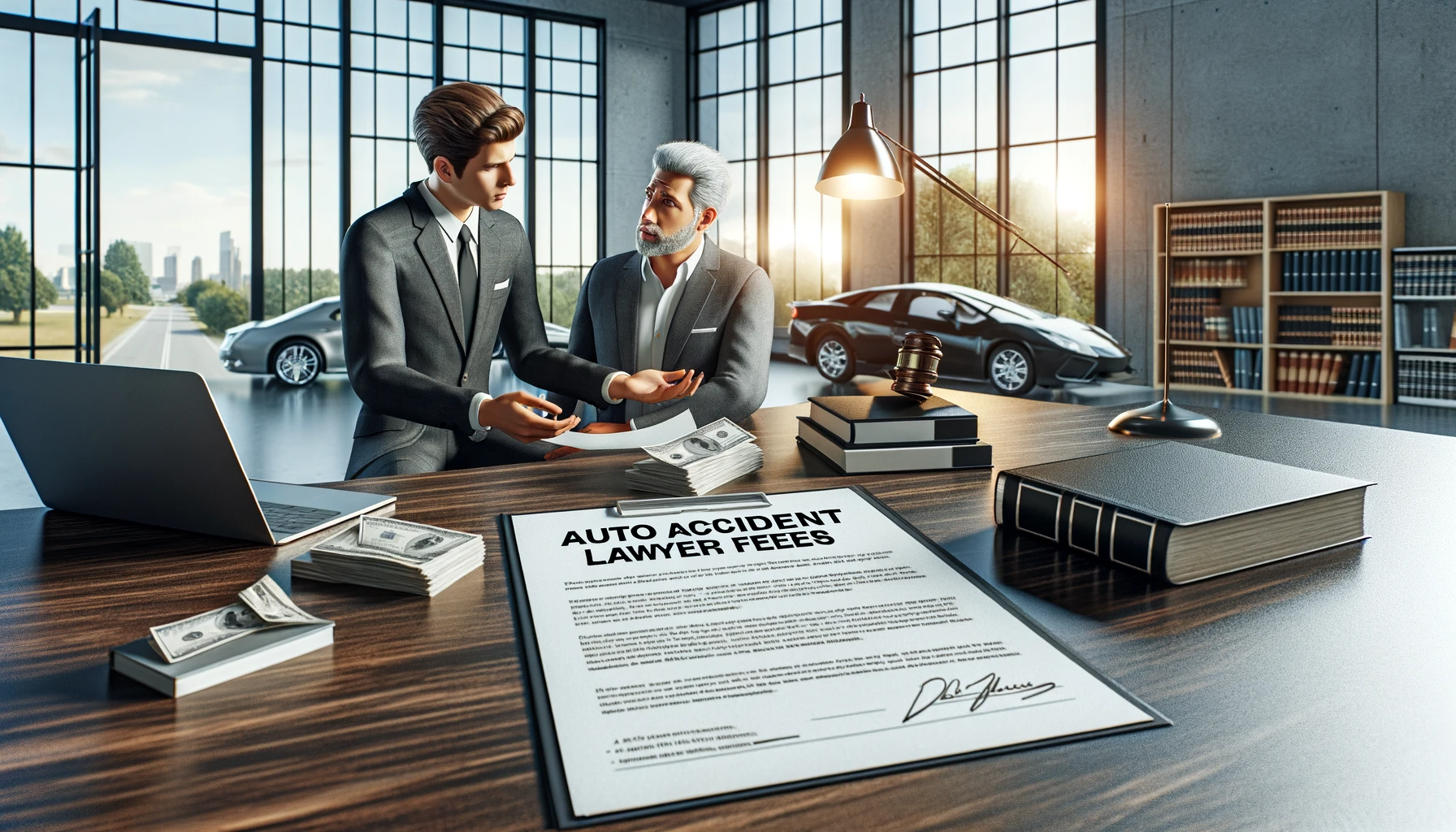10 Common Mistakes to Avoid After an Auto Accident: Expanded Guide
Accidents can strike without warning, leaving you feeling disoriented and overwhelmed. In such moments, your actions—or inactions—can significantly affect your physical health, legal standing, and financial stability. By understanding the common mistakes people make after an
auto accident and how to avoid them, you can navigate this challenging time with confidence and clarity. Here’s a comprehensive look at the 10 most common pitfalls and strategies to protect yourself.
Immediate Mistakes: The First Critical Steps
1. Leaving the Scene
Leaving the scene of an
accident is a critical mistake that can escalate a bad situation. No matter how minor the
accident may seem, you must stay until all legal and safety obligations are met. Remaining at the scene allows you to:
- Exchange information with the other parties involved.
- Assess the situation for injuries or hazards.
- Properly document the incident for future use.
Fleeing the scene could result in legal repercussions, including fines, license suspension, or even jail time, particularly if injuries are involved. Remember, your presence is essential for an accurate resolution.
2. Failing to Check for Injuries
Adrenaline after an
accident can mask serious injuries. Ignoring the need to check for injuries in yourself, passengers, or others involved could have severe consequences. Take the following steps:
- Conduct a quick self-assessment and check on passengers.
- Look for signs of pain, dizziness, or other symptoms, even if they seem mild.
- Assist others only if it is safe to do so, and avoid moving anyone with suspected spinal injuries.
Injuries like whiplash or internal bleeding may not be immediately apparent but can worsen over time. Always err on the side of caution by seeking medical attention promptly.
3. Not Calling 911
Failing to call 911 can lead to a lack of official documentation, which is crucial for legal and insurance purposes. Here’s why making that call is vital:
- Emergency responders can provide immediate medical assistance.
- Police officers can create a formal accident report that serves as an unbiased account of the incident.
- This report may be required by your insurance company to process claims.
Even in minor
accidents, having a professional record of the event ensures you’re prepared for any disputes that may arise later.

Documentation Mistakes: Securing the Evidence
4. Not Gathering Evidence
Accurate documentation is the backbone of any successful insurance claim or legal case. Failing to gather evidence leaves you vulnerable to disputes. Be thorough by:
- Taking clear photos of the accident scene, including vehicle damage, road signs, skid marks, and weather conditions.
- Recording videos of the scene to capture a full perspective.
- Collecting witness statements and their contact information, if possible.
This evidence can be invaluable for proving fault and protecting yourself in contentious situations.
5. Forgetting to Exchange Information
Skipping the exchange of vital information with the other driver can cause headaches down the line. Make sure to collect the following:
- Names, addresses, and phone numbers of all involved parties.
- Insurance policy details and company names.
- Vehicle make, model, and license plate numbers.
Additionally, verify the authenticity of the other party’s insurance card and contact your own insurer as soon as possible to report the
accident.
Communication Errors: Words Matter
6. Admitting Fault
Apologizing or making statements like “I didn’t see you” can be interpreted as admitting fault, even if that wasn’t your intention. Instead:
- Stick to factual observations about the accident.
- Avoid making assumptions about what caused the incident.
- Let law enforcement and insurance adjusters determine fault based on evidence.
A simple, polite demeanor is sufficient while sharing necessary details with others at the scene.
7. Talking Too Much
Oversharing can inadvertently weaken your position. Limit your communication to:
- Basic information exchange with other parties.
- Clear and concise explanations to law enforcement.
- Avoiding discussions of fault, injury severity, or vehicle condition until you consult with your lawyer or insurance company.
The fewer unnecessary details you share, the less likely your words can be misinterpreted or used against you.
Insurance-Related Mistakes: Ensuring Proper Coverage
8. Delaying the Insurance Claim
Waiting too long to file your insurance claim can complicate the process. Delays can lead to:
- Difficulties in verifying details due to fading memories or lack of evidence.
- Increased scrutiny from insurers questioning the validity of your claim.
- Missing deadlines for claim submissions.
Prompt action ensures a smoother claims process and helps you access coverage benefits without unnecessary delays.

9. Giving Incomplete Information
Incomplete or inaccurate information in your claim can delay the process or even result in denial. To avoid this:
- Provide detailed descriptions of the accident, supported by photos and videos.
- Be honest about the events, even if they seem minor.
- Keep all documents organized, including medical records, repair estimates, and receipts.
Thoroughness and accuracy are essential to a successful insurance claim.
Legal Oversights: Protecting Your Rights
10. Skipping a Doctor’s Visit
Skipping a doctor’s visit after an
accident, even if you feel fine, is a major mistake. Many injuries, such as concussions or soft tissue damage, manifest hours or days later. By visiting a doctor, you:
- Identify hidden injuries before they worsen.
- Obtain medical records to support your injury claims.
- Establish a timeline connecting the accident to your injuries.
Failing to seek medical care could weaken your claim and leave you vulnerable to further health complications.
Conclusion
Auto accidents are stressful, but avoiding these common mistakes can make a world of difference in your recovery and resolution process. By staying calm, documenting everything, and seeking professional advice when needed, you can protect yourself legally, medically, and financially. Remember, preparation and awareness are your best tools in minimizing the impact of an
accident. Stay informed, act promptly, and don’t hesitate to reach out for help when necessary.
Look for an attorney who has the right legal resources for your legal needs.
Contact us here on the
Warmuth Law website or through our hotline 888-517-9888.
Frequently Asked Questions (FAQ's)
1. What should I do immediately after an accident?
Stay at the scene, check for injuries, and call 911. Document the situation and exchange information with the other driver.
2. How can admitting fault impact my case?
Admitting fault, even unintentionally, can affect your insurance claim and legal standing. Stick to the facts and let the professionals determine responsibility.
3. What if I don’t feel hurt right after the accident?
It’s common for adrenaline to mask injuries. Always visit a doctor to rule out hidden or delayed symptoms.
4. Why is documenting the scene so important?
Photos and videos provide evidence that can protect you in disputes, strengthen your claim, and clarify the events.
5. When should I consult a lawyer?
If there are injuries, disputes, or significant damages, consulting a lawyer early can ensure your rights are protected and maximize your compensation.













